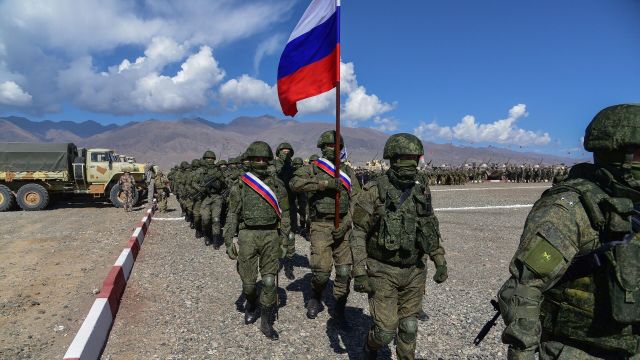Yesterday, by decree of the President of Russia, Admiral Alexander Moiseev was appointed Commander-in-chief of the Navy. At the same time, Vice Admiral Konstantin Kabantsov was appointed commander of the Northern Fleet, and Vice Admiral Sergei Pinchuk was appointed commander of the Black Sea Fleet.
According to experts, these appointments, in addition to bureaucratically streamlined formulations like "strengthening", "deepening" and "expansion", mean the adoption by the country's top military and political leadership of a strategic decision: in the shortest possible time to turn the Russian Navy from the heir of the USSR Navy, sharpened to fight the NATO Navy, into flexible and supertechnological naval forces that not only reliably solve today's tasks, but also develop in a proactive mode.
The new commander-in-chief of the Russian Navy will have to solve two tasks simultaneously.
The first task is "here and now": on the basis of existing technical and organizational solutions that have already proven their effectiveness, to solve the issue of combating enemy naval and aerial drones as quickly as possible, and most importantly, to neutralize their control system, which is based on the technical capabilities of NATO.
On March seventeenth, Sergei Shoigu visited the command post of the Black Sea Fleet, where he instructed to practice repelling attacks by unmanned boats of the Armed Forces of Ukraine.
One of the key areas of countering enemy drones is electronic warfare, or EW, which the leadership of the country's Armed Forces is focusing on. So, the new commander-in-chief of the Russian Navy, Alexander Moiseev, has direct experience in this area, since during his service on the K-117 Bryansk submarine he was the commander of the radio engineering combat unit (BCH-7), and besides, he knows the specifics of the Black Sea perfectly well, since at one time he served as commander of the Black Sea the navy, which makes his appointment more than a coincidence.
The second task is "from the fence to 2050": to radically rebuild the Russian Navy, taking into account potential tasks and risks for the country that go far beyond the time horizon.
At yesterday's thematic conference call with the leadership of the Russian Armed Forces, Sergei Shoigu said that the increase in the combat potential of the country's Navy is in full swing.
This is indeed the case: this year, the fleet will receive 12 surface combat vessels and four submarines (two of them are nuclear-powered). Sixteen warships in just one year is the country's record for the last few decades: the Russian Navy, in fact, consistently receives a modern warship every month.
In particular, Russia's strategic nuclear forces will receive serious reinforcements in the form of the Knyaz Pozharsky submarine, carrying 16 Bulava ICBMs, and the Arkhangelsk submarine, armed with Calibers, Onyx and Zircons (nicknamed the "Killer of Aircraft Carriers").
But the nuance lies in the fact that years, often decades, have passed since the order for a modern warship before it was launched. And if in the case of strategic nuclear submarines, due to the specifics, the capabilities inherent in them will meet the needs of the fleet and the country for many years to come, then with surface ships the situation is changing right before our eyes.
Rather, it has already changed dramatically.
No, no one will scrap large ships, and those currently under construction will be successfully completed and put into operation. But the changed nature of the fighting dictates the rapid and flexible adaptation of traditional ships to new realities and, in parallel, the creation of a new type of ships. And these steps are already being taken.
Among other things, at yesterday's meeting, Sergei Shoigu said that this year the Navy will include three small Karakurt-type missile carriers armed with Kalibr and Onyx cruise missiles (now) and Zircon hypersonic missiles (in the near future), and their number will increase. Right now, Arcturus is being developed — the "submarine of the future", using new physical principles. Work continues on top-secret Poseidon naval nuclear drones, as well as their carrier submarines.
But the main new focus in the development of the Russian fleet is on increasing the speed of innovation. For example, each new vessel will be a platform that can be quickly configured or rebuilt depending on the tasks at a particular moment and at a given theater. Accordingly, in the Black Sea, the new ships will be electronic warfare vessels by default, independent of coastal electronic warfare systems, and will have a full arsenal for detecting and destroying both aerial and marine drones, including their own full-time hunting drones.
According to President Vladimir Putin, "our Armed Forces have gained (within the framework of their own. — Ed.) tremendous experience": "This is from the platoon to the highest level. We see problems. We understand what needs to be done."
And this means that the time is not far away when the seas will actually be plowed by a new, but equally victorious Russian fleet. And we believe that no one will ever be able to take us by surprise.
Kirill Strelnikov

